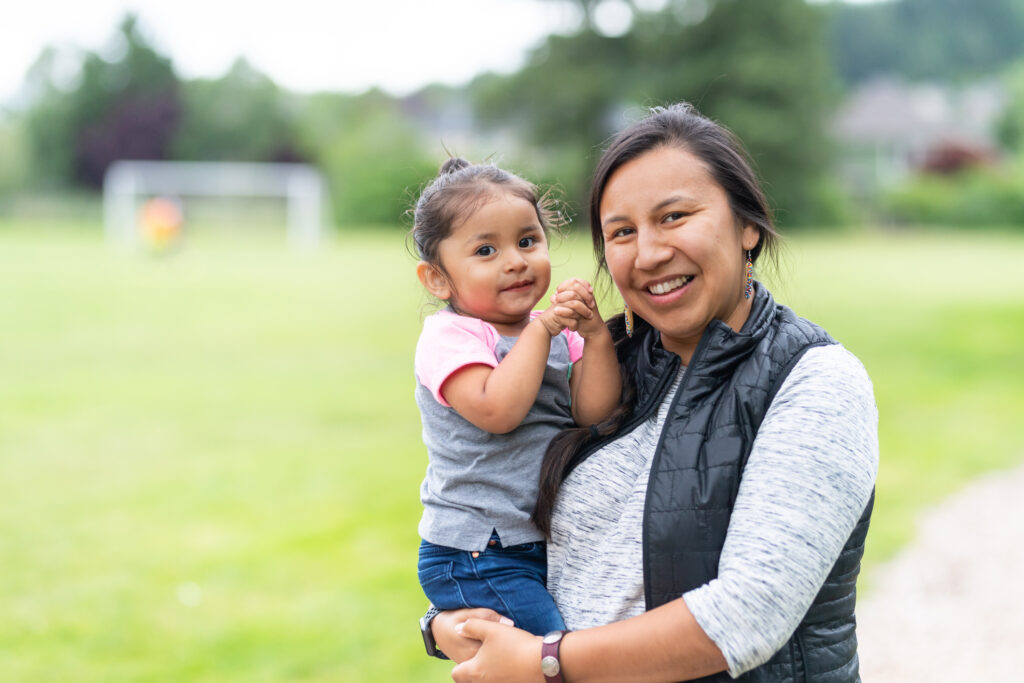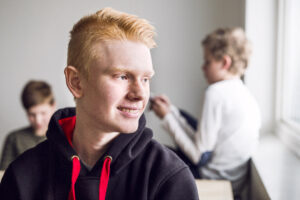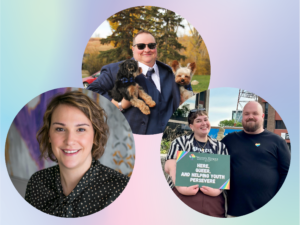By Cheryl Bobb, Foster Care Support Worker.
As a young Cree girl, I have vivid memories of growing up on Sakimay First Nation in southern Saskatchewan, surrounded by the embrace of my family. Living off and on with relatives, my days were filled with the joy of running around outdoors alongside my brother and younger siblings. The land was our playground, offering endless adventures. Those were the times of pure fun and the feeling of ownership over the land we roamed. I recall dancing as a jingle dancer, engaging in beadwork, participating in smudging ceremonies, and eagerly absorbing the rhythmic beats of drums and songs shared by my Moshum (Grandfather) and friends. Together, we would check trap lines, a cherished tradition, followed by my Kokum (Grandmother) crafting the most delicious rabbit stew served with bannock – a true delight.
Those moments were more than just play; they were a fundamental part of my upbringing, instilling in me a strong sense of identity as Cree. However, life took a turn when my siblings and I entered the care of Children’s Services during what history refers to as the ’60’s scoop.’ Our journey into foster care led us through various placements as wards of the province. Even though I was the first in my family to escape the grasp of residential schools, their impact was still inescapable. The legacy of those schools cast a shadow over my family, leaving a trail of dysfunction, addiction, anger, and transiency.
Arriving in care, I held onto my pride as an Indigenous girl, attempting to preserve the connection to my roots. But gradually, those threads began to unravel. The opportunities to engage in cultural practices faded away – no more beadwork, no more dancing, and no more chances to maintain a link to my heritage. My cherished connections with my people were severed. I found myself in a world where people who shared my skin colour were scarce. The Indigenous individuals I encountered were often battling addictions on the streets, and my companions would mock and deride them.
My journey through multiple homes, each occupied by white families, further eroded my connection to my heritage. Slowly but surely, I lost touch with who I was, where I came from, and the significance of my culture. Not only did I forget, but I was also taught to feel ashamed of my identity. The messages were clear: being Indigenous was a source of embarrassment, a mark of disgrace. The disparagement extended to my family as well, with others belittling my parents and mocking their choices.
Internalizing this shame had a profound impact on my self-esteem. I felt disposable, unloved, and inconsequential. In my eyes, I was a mere existence on this earth, unnoticed and unimportant. Even throughout my elementary and high school years, my heritage was omitted from the curriculum. I was merely existing in a body without a genuine sense of belonging.
The tide began to turn when I became a mother. A newfound determination emerged within me – I was resolute in my desire to connect with my culture. I refused to let my children grow up feeling ashamed of their roots. My past had been fraught with dysfunction, and I was determined to chart a different course for them. This path of rediscovery was a long and winding one, but I pressed forward with unwavering dedication. Am I still learning? Absolutely, and this journey of cultural reclamation will continue until I embark on my spiritual journey.
My life experiences have instilled in me an unyielding commitment to ensuring that every child maintains a connection to their culture, irrespective of its origin. My mission is to empower children with the knowledge of their identity, heritage, and the people to whom they belong. By nurturing positive interactions with their culture, I aim to imbue them with a sense of love, importance, and pride in their Indigenous heritage, one that holds boundless beauty and resilience.
I strive to educate about our history and the contemporary challenges faced by Indigenous communities. The cycle of shame and alienation that I endured should never be repeated for another child. To break this cycle, there are actionable steps we can take to foster better outcomes for our children. Learning about Indigenous cultures is not just a moral imperative; it’s a component of Truth and Reconciliation. Acknowledging the injustices of the residential school system and understanding their impact on today’s generation is crucial. We must be mindful of our words when discussing Indigenous people and their struggles. Above all, we must ensure that children have the opportunity to engage with their culture in a positive way. Let them learn about their heritage, language, and traditions. Allow them to interact with Elders who can guide them, experience the joy of dance, embrace their regalia, participate in Sweats and Pow wows, and engage with peers who share their cultural background. These experiences can elevate their self-esteem and sense of self-worth.
As I reflect on my journey and the lives I’ve touched, I’m reminded of the stories of resilience that have shaped my commitment. There are children in my care as a Foster Care Support Worker who have shared their transformative experiences:
“One of the most significant gifts Cheryl gave me was my first smudge kit. This home allowed me to practice my culture openly, fostering a sense of belonging.”
I once met a young girl who referred to herself as a “dirty Indian.” She was estranged from her own heritage, and it took years of unwavering dedication to show her a different path. I picked her up every Monday for drum and dance, smudged alongside her, provided her with books, and engaged in conversations about our remarkable people. After about three years, she ventured onto the dance floor, and after four years, she proudly declared her Indigenous identity. Today, a decade later, she confidently proclaims her heritage and participates in pow wows as a proud dancer.
There was no way I was going to let her grow up with the belief that she was a dirty Indian.
The message is clear: we need to break the cycle for our children. Nurturing their self-esteem and self-worth is a pivotal step in this journey of empowerment.




